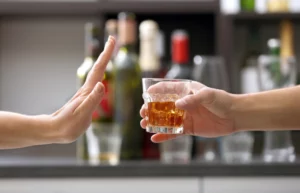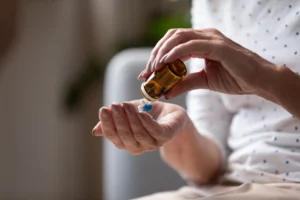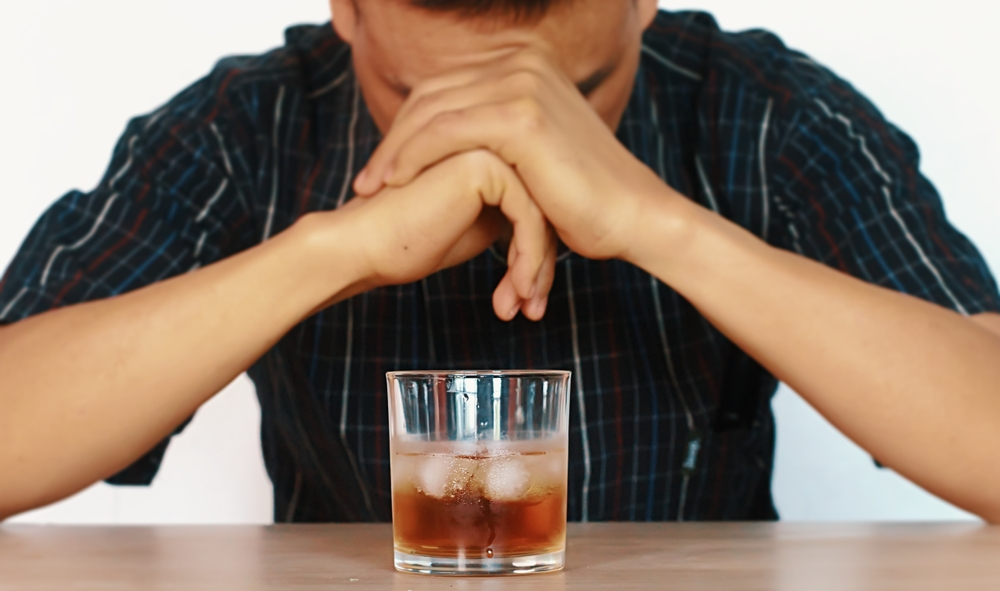If you’ve decided to stop drinking, your body will need time to detox from the alcohol. The acute alcohol withdrawal symptoms you may experience are your body’s way of rebalancing itself. The detox process typically takes between two to seven days.
Someone going through alcohol withdrawal will begin to experience the symptoms seven to eight hours after having their last drink. For most people, the symptoms begin to taper off after 48 to 72 hours, but everyone is different, and some people will continue to experience uncomfortable side effects for several days or more.
The good news is the detox period is temporary. Staying committed to your recovery and making necessary lifestyle changes will help you live free from alcohol in the long run. You’ve got this! The rewards of improved health, relationships, and quality of life make it worthwhile.

Alcohol Detox Timeline
The detox process begins as soon as you stop drinking, but the most difficult symptoms tend to appear within the first week. During the initial hours after your last drink, you may experience mild withdrawal symptoms like headaches, shakiness, and irritability.
After 24 hours without alcohol, the mild symptoms intensify. You may feel disoriented, experience tremors in your hands, or even have seizures. The painful symptoms that began in the first 12 hours continue through the second day. Hallucinations and panic attacks are common as your body works to remove the alcohol from your system.
The remainder of the first week is when life-threatening symptoms like delirium tremens are most likely to occur, though the severe symptoms may come and go. While the painful withdrawal effects start to decrease after the first week, some symptoms could last a few weeks.
Symptoms Of Alcohol Detox
The alcohol detox phase typically lasts 3 to 7 days for most people, but the severity and longevity of your symptoms can depend on factors like how long and how much you’ve been drinking. As your body works to eliminate the alcohol from your system, you may experience unpleasant withdrawal symptoms ranging from mild to severe:
- Anxiety, restlessness, and irritability: Feeling on edge, sweaty, and unable to relax are common. Deep breathing, meditation, and exercise can help.
- Nausea, vomiting, and loss of appetite: Your stomach will need time to settle. Stay hydrated with water and clear fluids. Ginger or peppermint tea may help with nausea.
- Insomnia and night sweats: It can be difficult to sleep during detox. Limit screen time and caffeine, and try relaxation techniques before bed.
- Headaches: Drink plenty of water and use over-the-counter pain relievers if needed. Headaches should subside within a few days.

Medications Used During Alcohol Detox
To safely detox from alcohol, medications are often used to help manage withdrawal symptoms, reduce cravings, and support your recovery. The most common medications include:
- Benzodiazepines: These anti-anxiety medications, like Valium or Librium, are used to calm your central nervous system and treat insomnia, anxiety, and muscle spasms during detox. They help make withdrawal symptoms more tolerable so you can focus on getting better.
- Naltrexone: Naltrexone blocks the euphoric effects of alcohol, reducing cravings during detox. If there’s a relapse, it prevents feeling intoxicated. Known brands are ReVia and Vivitrol.
- Acamprosate: Acamprosate, or Campral, helps your brain regain functioning after quitting drinking. It relieves withdrawal symptoms like insomnia, anxiety, and restlessness.
- Disulfiram: Disulfiram, or Antabuse, causes unpleasant reactions if any alcohol is consumed, like nausea, vomiting, and flushed skin. It deters drinking by producing these negative side effects, though it should only be used under medical supervision.
Factors That Influence a Detox Timeline
Several factors determine how long it will take you to detox from alcohol and what withdrawal symptoms you may experience:
Health History
Your overall health and any preexisting conditions will impact your detox timeline. If you have a history of severe alcohol abuse or medical issues like liver disease, detox may take longer.
Amount/Duration of Drinking
The longer you’ve been drinking, the more ingrained the addiction and the more difficult the detox. Someone who has been binge drinking heavily for years will likely face a longer, harsher detox than someone who has only been drinking moderately for a short time.
Age/Weight/Gender
Your physical characteristics play a role, too. Detox may be quicker for younger, lighter, and female individuals versus older, heavier, and male individuals. Hormones, metabolism, and body fat percentage are all factors.
Use of Other Substances
If you’ve been combining alcohol with drugs like benzodiazepines or opioids, detox will be more complicated and drawn out. These substances interact with and amplify the effects of alcohol in your body and brain, making withdrawal particularly dangerous and difficult.
Mental Health
Underlying mental health conditions like depression or anxiety can intensify withdrawal symptoms and cravings, slowing down the detox process. Counseling and medication may be needed to address these co-occurring disorders during your recovery.
It’s Hard, But You Have What It Takes
Detoxing from alcohol is painful, but face the discomfort head-on. Don’t numb the pain or avoid it. Embrace the struggle as proof of your commitment to getting sober. Conquering your addiction and breaking free of alcohol’s hold on you won’t be easy or comfortable.
Call us today at 1 (888) 592-7931. We will support you through detox and recovery. Don’t go through this alone. Let our caring MD Home Detox staff assist you as you take this critical first step. Together, we will help you achieve and maintain your sobriety. You can overcome your addiction and get your life back. We believe in you.

